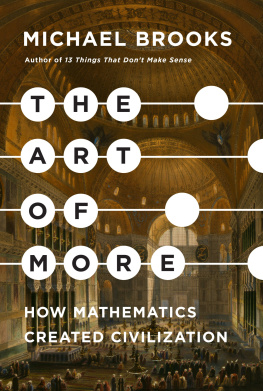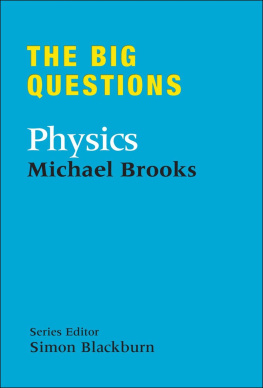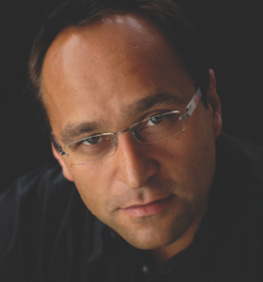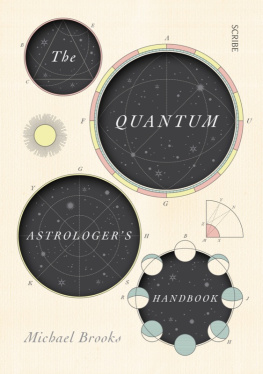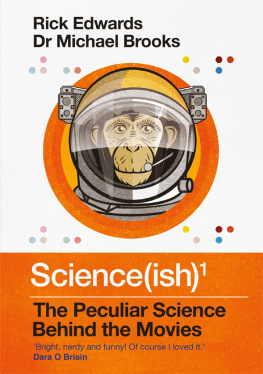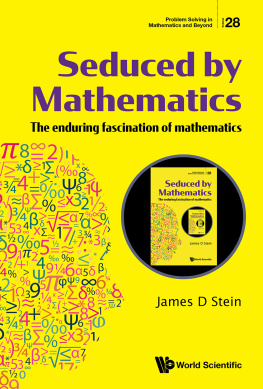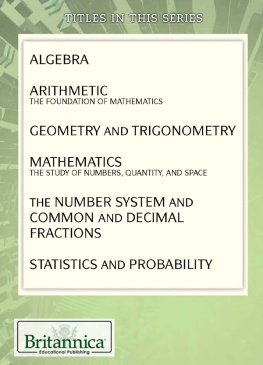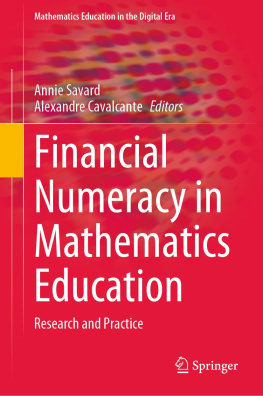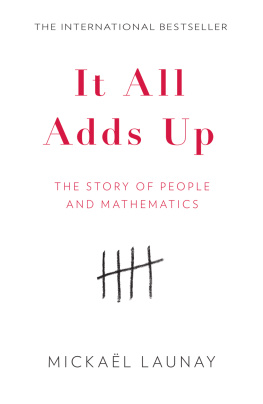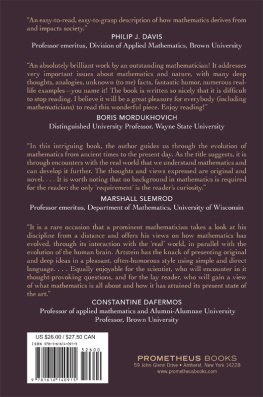Contents
Landmarks
Print Page List
Acknowledgements
Finishing a book, and finally presenting it to the world, is bittersweet. I dont think I have ever enjoyed writing a book as much as this one, and I feel a hint of sadness that the fun of learning so many new things about numbers is finally over.
My family are probably relieved, however. No more evenings of me exuberantly assailing them with the fruits of that days research; no more try this Egyptian method of doing multiplication for me it wont take you a minute; no more tell me what it was like to encounter imaginary numbers for the first time; no more I think I want a slide rule/sextant/abacus for my next birthday Phillippa, Millie, Nova thank you for your patience. I hope it wasnt too painful.
The fact that this book exists at all is down to Patrick Walsh and the team at PEW Literary. I was astonished when Patrick jumped at my vague, half-baked idea of a book on maths for people who had never quite managed to engage with the subject. We fleshed it out together while walking on the clifftops above Cuckmere Haven, and I have never doubted the idea since. My editors Molly Slight and Edward Kastenmeier, and their teams at Scribe and Pantheon respectively, have provided insightful and enthusiastic support throughout this project. Special thanks to copyeditor Richard Leigh for his painstaking work on the manuscript and for enjoying the Marshall Plan joke, and to Philip Gwyn Jones for his early support.
I am extremely grateful to my honest and diligent readers: experts Artur Ekert and Matthew Hankins, and non-experts Shaun Garner and Charlie Higson. And somewhere in between he knows what I mean was Rick Edwards. All of them provided valuable help, but any errors that remain (of fact or judgement) are mine.
Finally, I want to thank those who helped me out with insights on a range of subjects, from the history of accounting to the day-to-day practice of architects. They are, in no particular order, Richard Lindley, Jens Hoyrup, Jon Butterworth, Melanie Bayley, Christopher Napier, Keith Hoskin, Richard Macve, Manfred Zollner, Jean-Jacques Crappier, Erdal Arikan, Radford Neal, Nick Kingsbury, David Blockley, and Andrew Whitehurst.
Michael Brooks
May 2021
About the Author
Michael Brooks a science writer with a PhD in quantum physics. He is the author of several books, including 13 Things That Dont Make Sense: The Most Baffling Scientific Mysteries of Our Time and The Quantum Astrologers Handbook, a 2017 Daily Telegraph Book of the Year. He lives in the United Kingdom.
Chapter 1
ARITHMETIC
How we founded civilization
Humans didnt evolve with a compulsion to count. But after we invented numbers and arithmetic, we eventually became reliant upon them. Numbers enabled people to govern, tax, and trade with each other, opening up the possibility of living in large interdependent communities. Eventually, arithmetic and its creations fractions, negative numbers and the concept of zero became the driving force behind economic and political success: those who can crunch the numbers are those that decide the future of workers, of nations, and even of the planet. And it all started with a mental leap to the number 4.
In the first half of the 15th century, the Medici Bank was the toast of Florence and the envy of Europe. The secret of its success was simple: its chief accountant, Giovanni Benci, was an enthusiast for bookkeeping and a stickler for protocol. He audited the accounts of all the banks branches every year, checking on the status of debtors and the likelihood of payment defaults. If you managed one of the banks branches, and your accounts didnt add up, Benci would call you in and tear you apart. And then, in 1455, Benci died and everything fell apart.
The Medici Banks employees were suddenly free of Bencis prudence, and began promising far too generous a return to depositors, akin to a modern bank guaranteeing a 10 per cent return on any investment. The need to find the money for those guaranteed interest payments led to a toxic lending policy. The bank offered loans at exorbitant interest rates and, desperate to finance their wars, European kings and noblemen took up the Medicis offers with no intention of paying their debts. The bank had no way of enforcing repayments, and so the money was lost. Meanwhile, the partners in the bank cast their eyes over books that were inflated by the promise of these never-to-be-seen payments, and took the non-existent profits out of the business for their own private spending. Their extravagant lifestyles ran riot, draining the bank of cash. In 1478, the Medici bank began to collapse. Faced with personal ruin, Lorenzo de Medici, great-grandson of the banks founder, bailed himself out by raiding public funds. The Florentine public was outraged, and stormed the Medici palace in 1494, setting fire to all its banking records. A century-long domination of Europes cultural, political, and financial capital went up in smoke.
Historys next demonstration of the world-changing power of accounting came with the French Revolution. We can trace its eruption to the sacking of accountant Jacques Necker, who had been trying to fix Frances broken financial system and reduce its crippling national debt. In the process, he had exposed the profligate indulgence of the French royal court. Eventually Neckers interference was too much for the ruling classes, who were losing money hand over fist in his reforms. Necker lost his job as finance minister but gained a loyal and dangerous band of admirers.
The historian Franois Mignet describes the revolutions inciting moment: the hotheaded Camille Desmoulins stands on a table, pistol in hand. Citizens! There is no time to lose! the young rebel cries. Neckers dismissal, Desmoulins says, is an insult and a threat to every patriotic citizen of France. One resource is left; to take arms! At this rallying cry, crowds rush into the streets. On their shoulders they carry busts of the sacked accountant. Mignon tells us: Every crisis requires a leader, whose name becomes the standard of his party; while the assembly contended with the court, that leader was Necker.
Neckers crusade was focused on something we rarely conceive of as revolutionary: he wanted to balance the books. Necker had pointed out that the English parliament published all its accounts and Englands finances were in a healthy state, despite heavy borrowing to finance wars abroad. He was determined that France should achieve the same transparency. Balanced books, Necker said, were the basis of moral, prosperous, happy, and powerful government. And so he attempted to streamline the French governments sprawling array of ledgers into a single account based on books that he would audit himself. The idea was not popular among those in power, but extremely popular among those who were not. And so, as historian Jacob Soll has put it, The French Revolution would begin, in part, as a fight about accountability and accurate numbers in government.
Its not only France that envied foreign financial systems; the pillars of the United States economy tax revenues, the dollar and the central bank were copied principally from Dutch and English banking practices. At the time, America had no banks, and was drowning in debt. Banks, said Alexander Hamilton in 1781, were the happiest engines that ever were invented for advancing trade. Hamilton argued that freedom from British rule would come from understanding and controlling the accounts. Tis by introducing order into our finances by restoring public credit not by gaining battles, that we are finally to gain our object, he said. Great Britain is indebted for the immense efforts she has been able to make in so many illustrious and successful wars essentially to that vast fabric of credit raised on this foundation. Tis by this alone she now menaces our independence.

